2013.10.29: UPDATE
Considering critical input from other photographers I am going to revise article with more “HDRic” outdoor example with more colors and dynamic range and may be different conclusion. Just need to wait for sunny days 🙂
2013.10.24 ARTICLE:
Recently I faced strange phenomenon – some panoramic photographers started doing HDR from 5, 7 or even 9 brackets, stating that it gives better image quality than standard HDR from 3 images.
I am not a big fan or a specialist of HDR, but I do have some experience in this area as I’ve been shooting in HDR since 2007. What made me doubt and write this was a statement that -3 -2 -1 0 1 2 3 sequence is better then -3 0 3. So I decided to make a small experiment.
Part 1: 3 brackets vs 7 brackets
Let’s take an assumption of one image from our camera having -3 … +3 dynamic range.
Theoretically, “-3 -2 -1 0 1 2 3″ give us – -6 …+6 dynamic range:
but, the same -6 ..+6 dynamic range we will get from -3 0 +3:
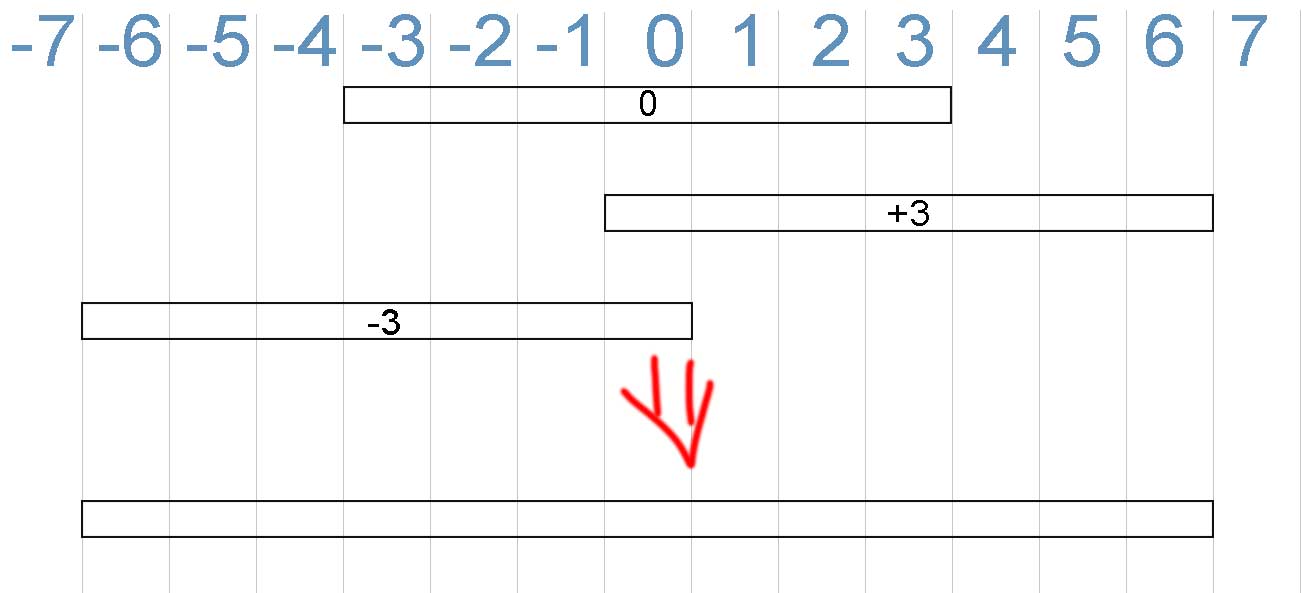
The main question: does additional images inside dynamic range give us additional image quality?
I did 9 image bracketing (a little bit more than I needed):
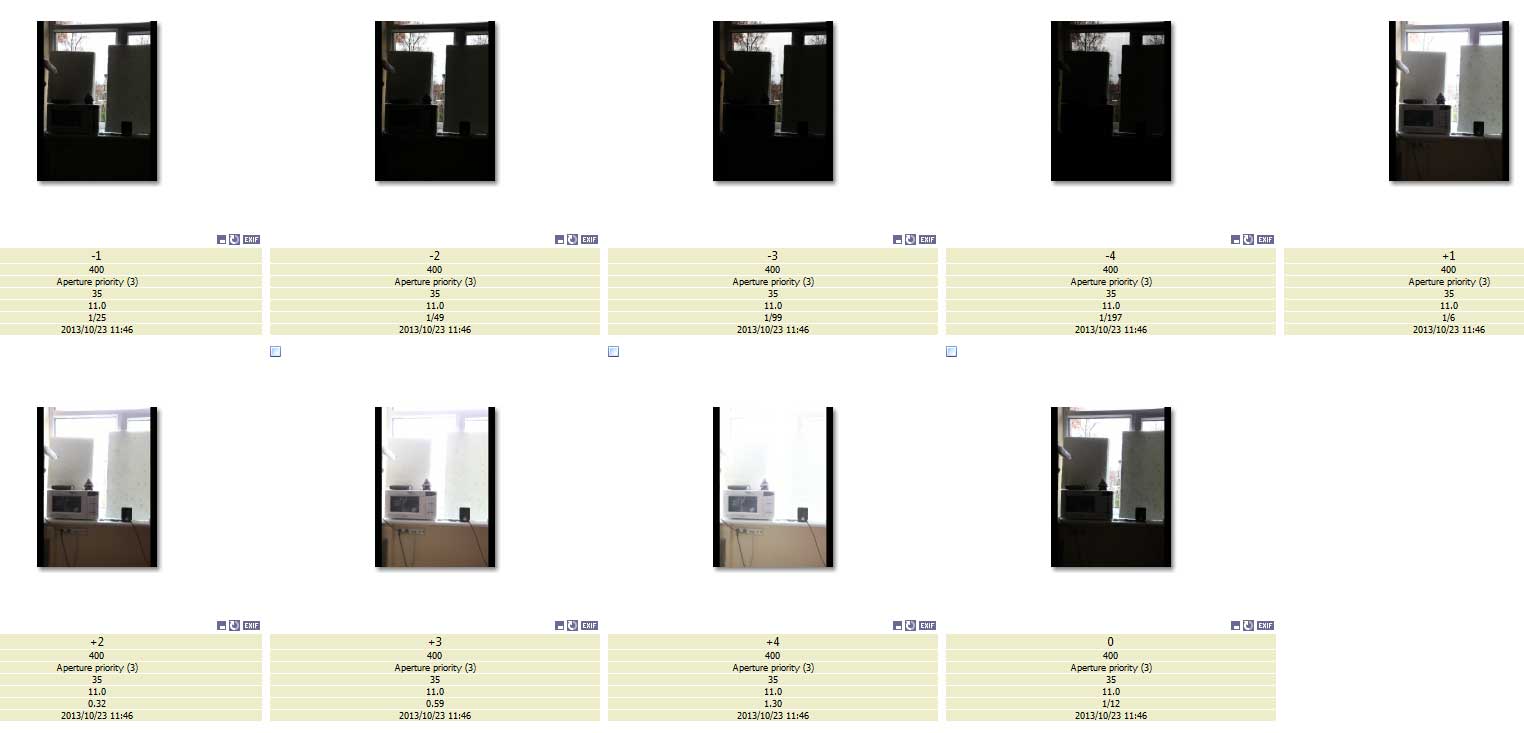
and did two LDRs, one from -3 0 +3 and another from -3 -2 -1 0 +1 +2 +3 (Photomatix 4.2.7, Photographic preset(tonemapping, tonecompressor)). I get the following results:
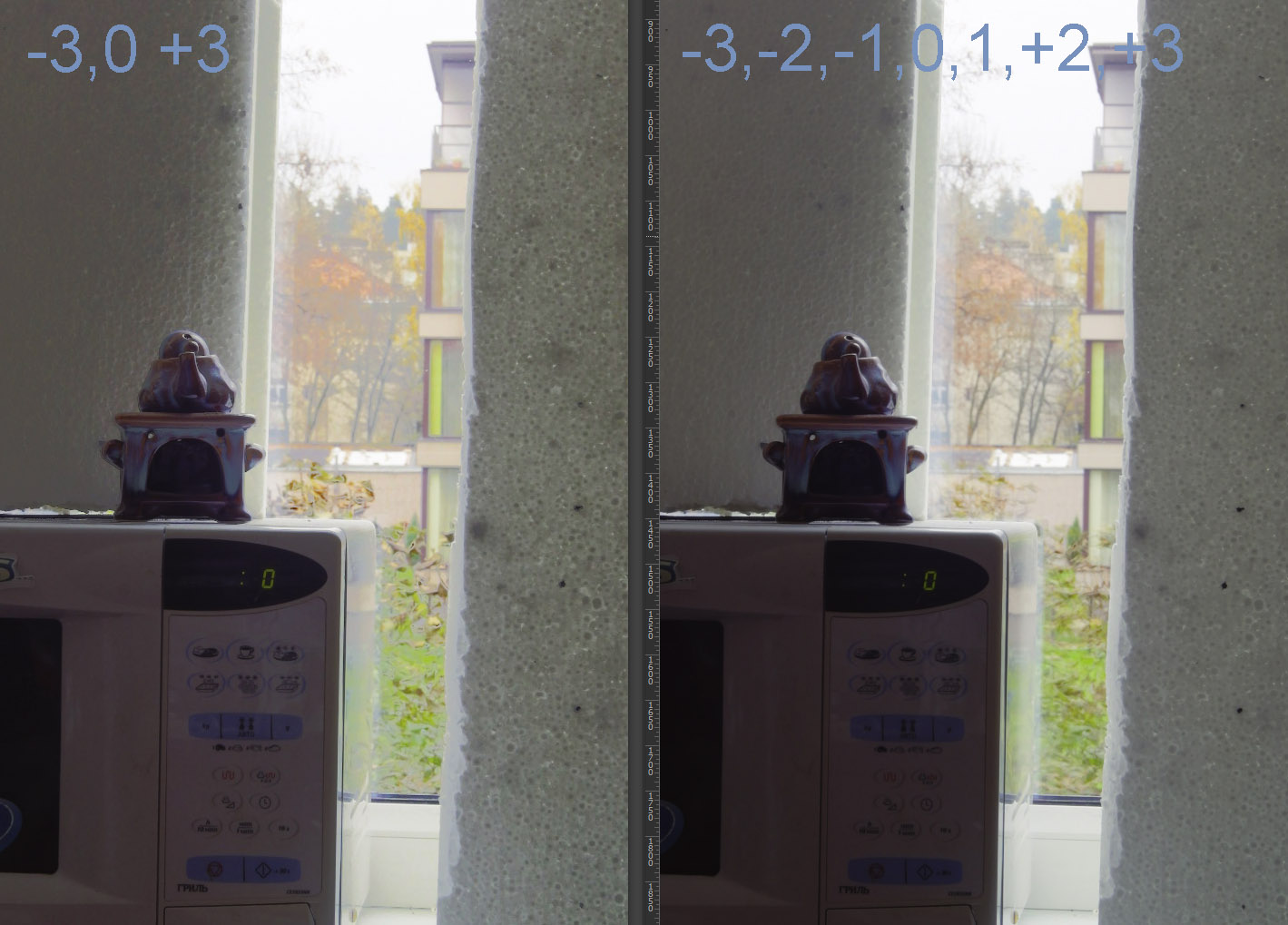
in my opinion these images are almost identical (left one is a little bit brighter)
As -3 0 +3 is a little bit bright it is better for shadows (but you need to push it with levels or like to see the difference):
The -3 -2 -1 0 +1 +2 +3 is darker – so it is better represents highlights:
The difference in brightness could be caused by tonemapping algorithm, and without levels they are almost unnoticible.
Conclusion1: having additional brackets inside your dynamic range doesn’t give you additional image quality. I, probably, won’t make more than 3 bracket HDR, unless I will need more than +-3
Part 2: RAW vs JPG
I normally shoot JPG + RAW – so I decided to answer another important question: does RAW give more image quality than JPG in HDR processing?
I made one -3 0 +3 tonemapping with JPGs and another with 16 bit Tiffs (converted from RAW with ACR defaults):
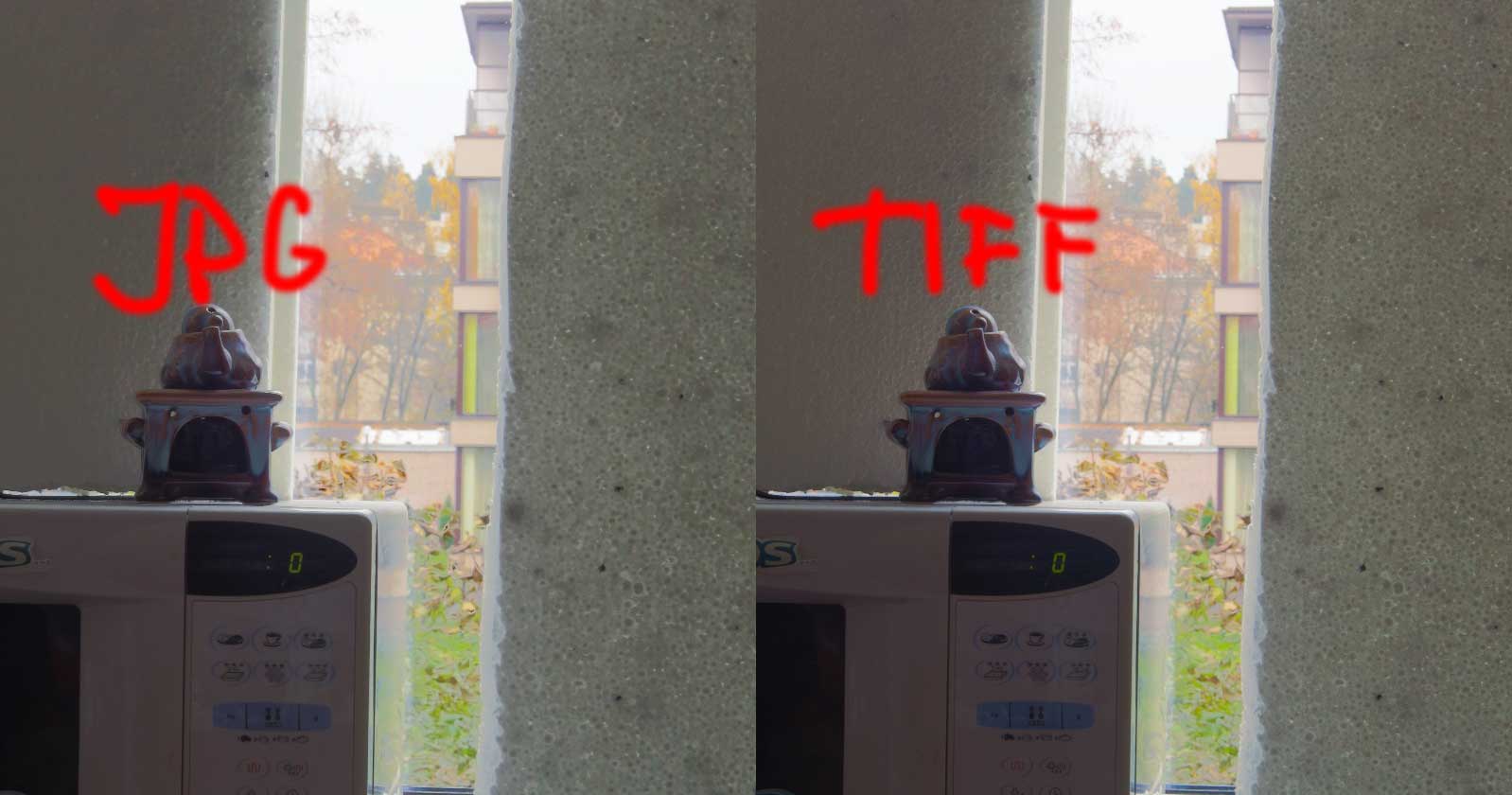
OMG! it’s full of stars! they are the same!
Conclusion2: RAW dynamic range advantage is destroyed by tonemapping. I’ll shoot HDR in JPG (unless I will need some custom WB or extra details)
N.B. It could be interesting to make HDR from expanded dynamic range Tiffs (RAW processed with brightened shadows and reduced highlights) – but this is subject of another experiment:)

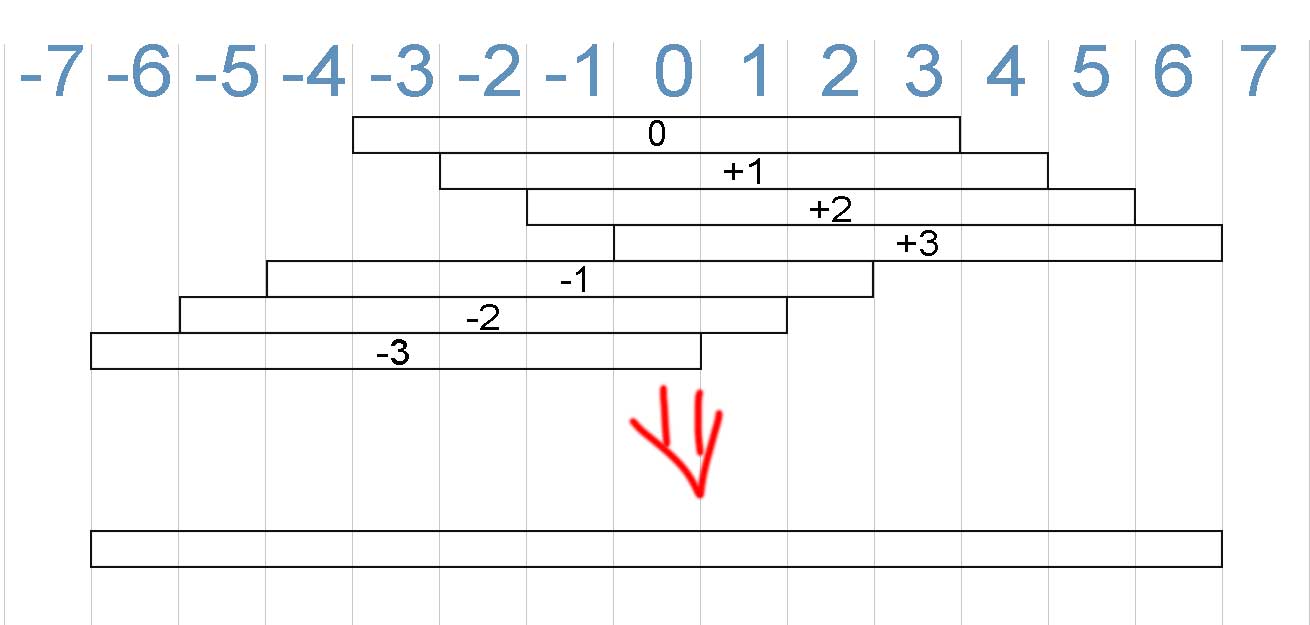
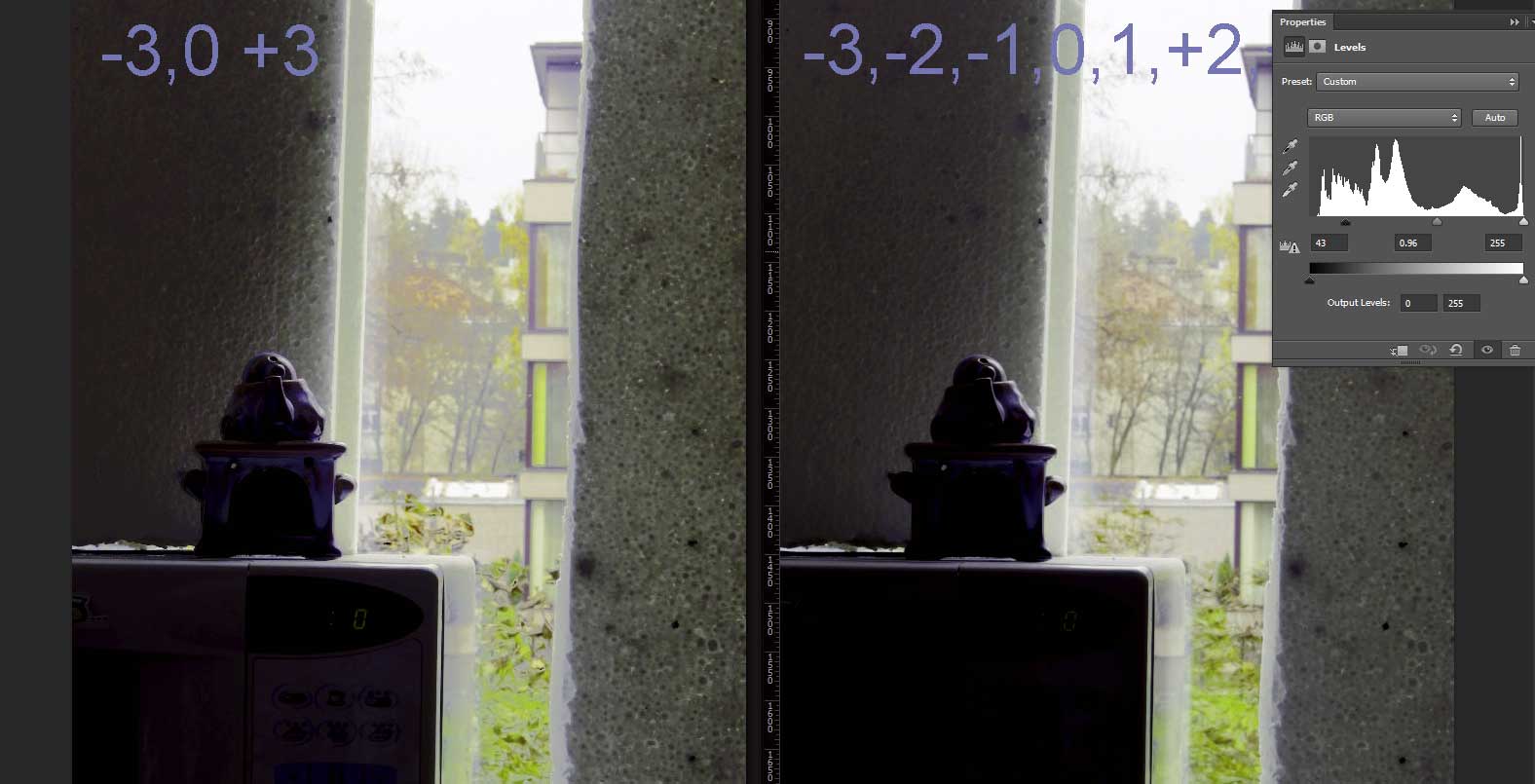
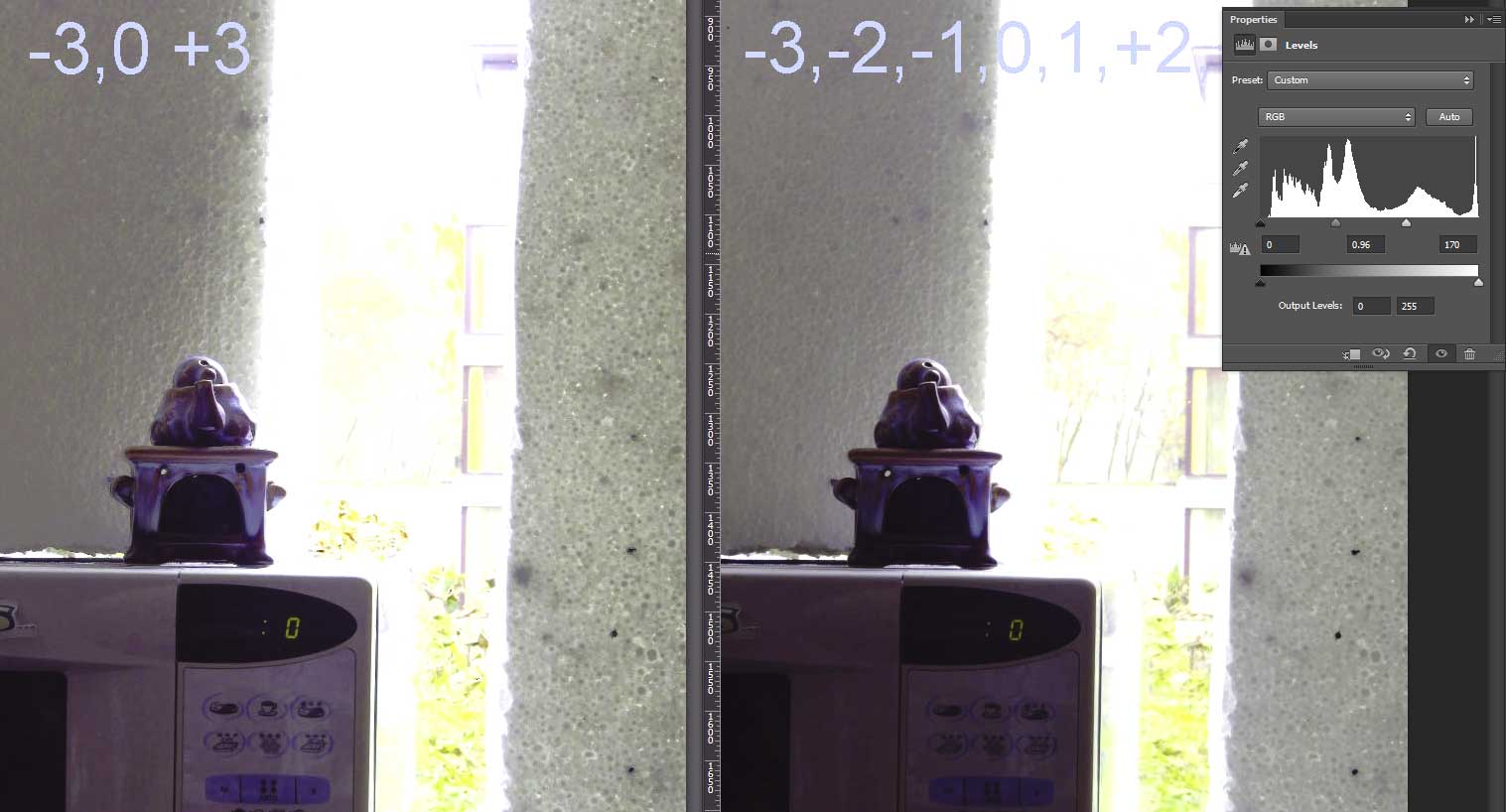

When I produce some HDR files the best is to not use bracketting but change aperture and speed with camera on tripod to have 5 files with 5 different exposure. Post processing and tone mapping is done by the software Dynamic-Photo HDR which I recommend to use. Result example : http://trekstory.free.fr/pics/picture.php?/2856/category/18